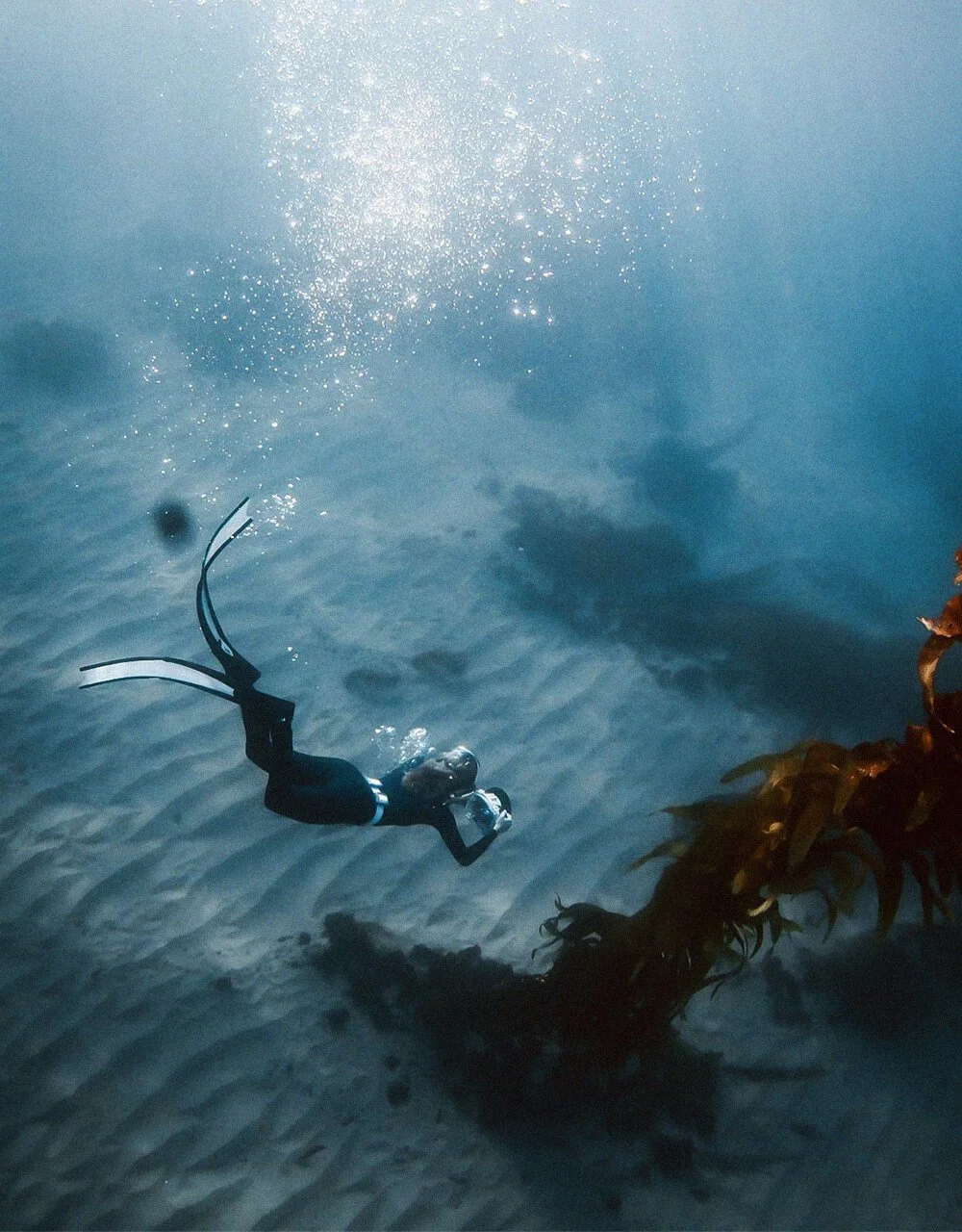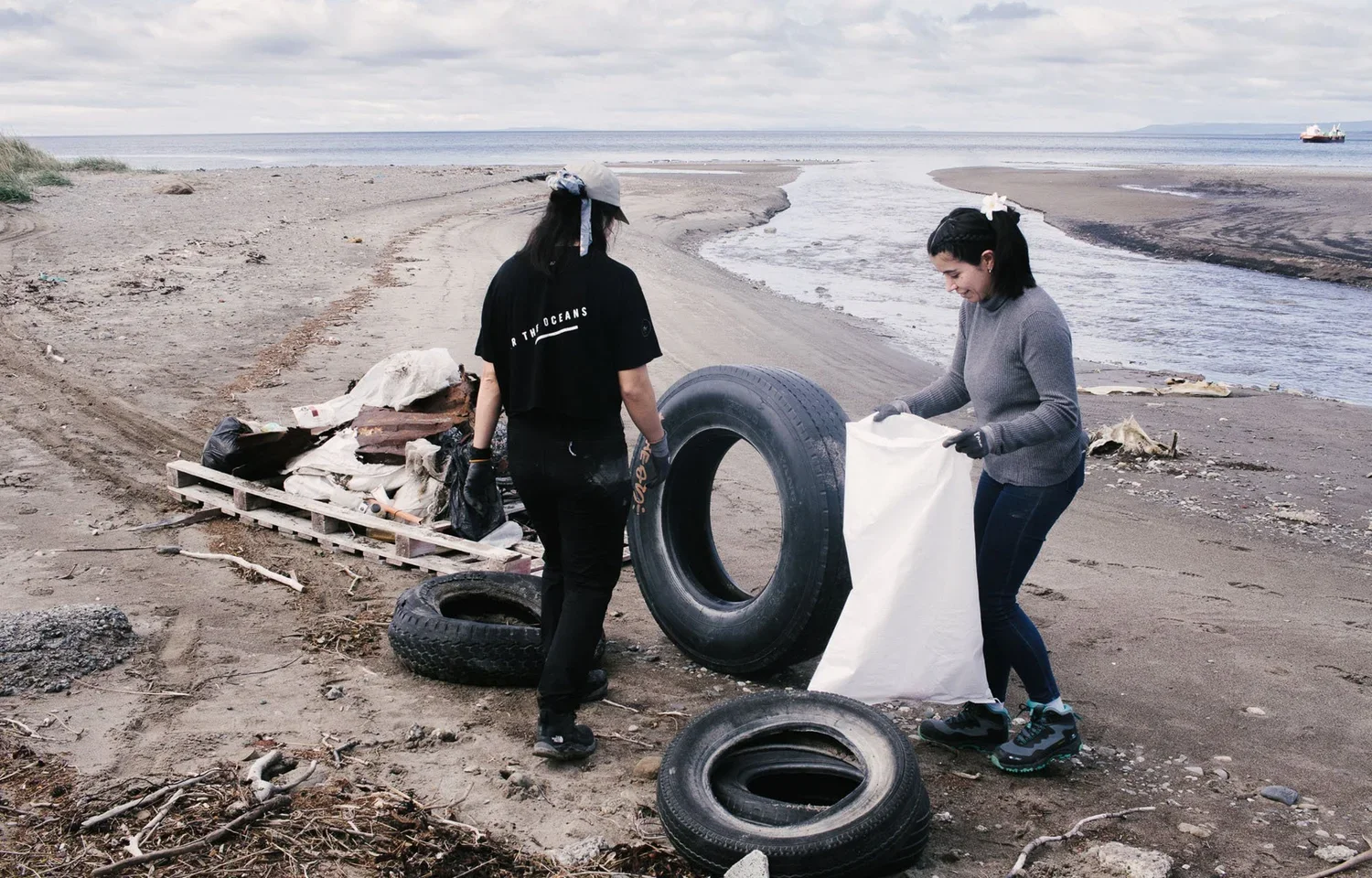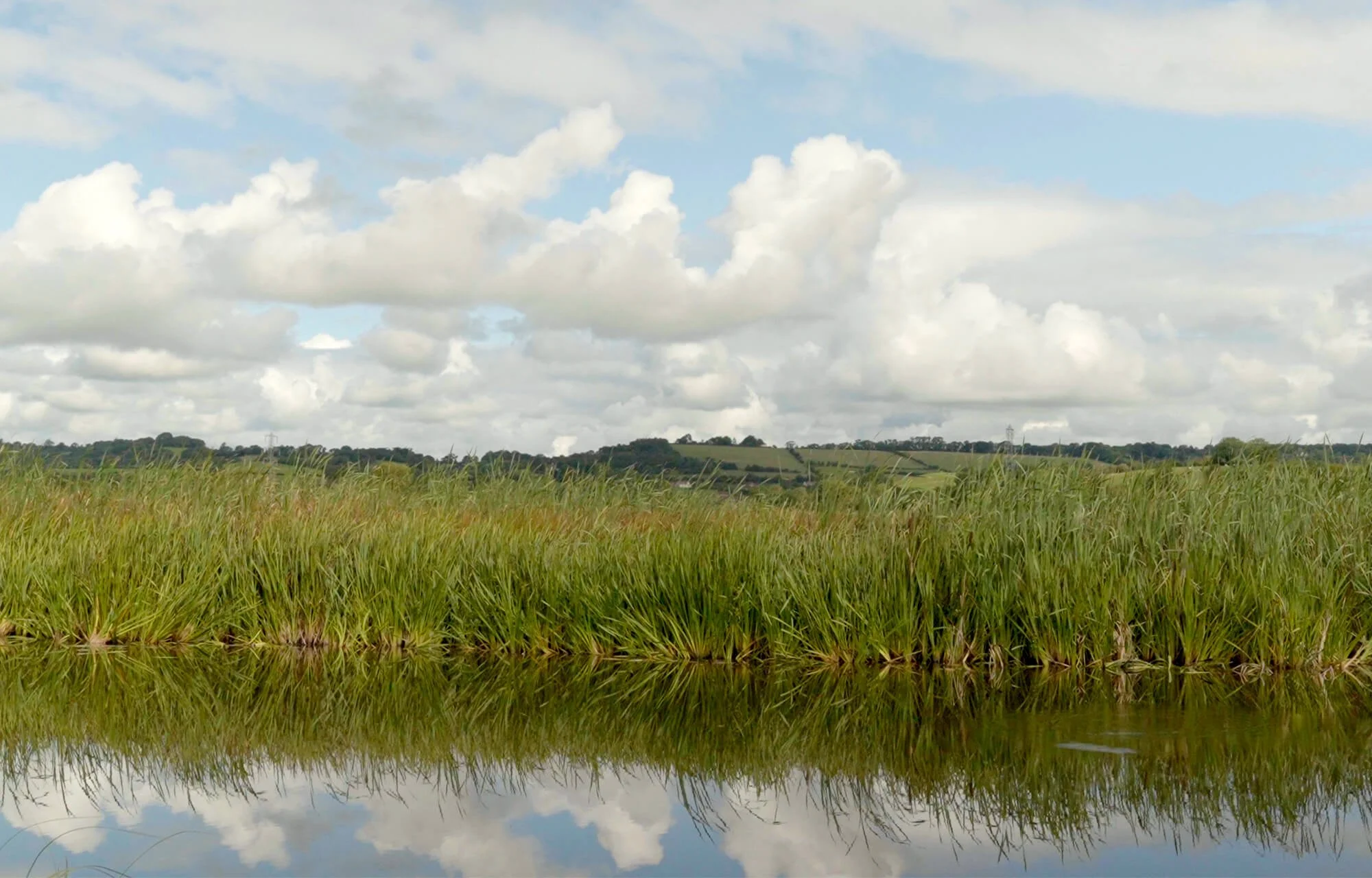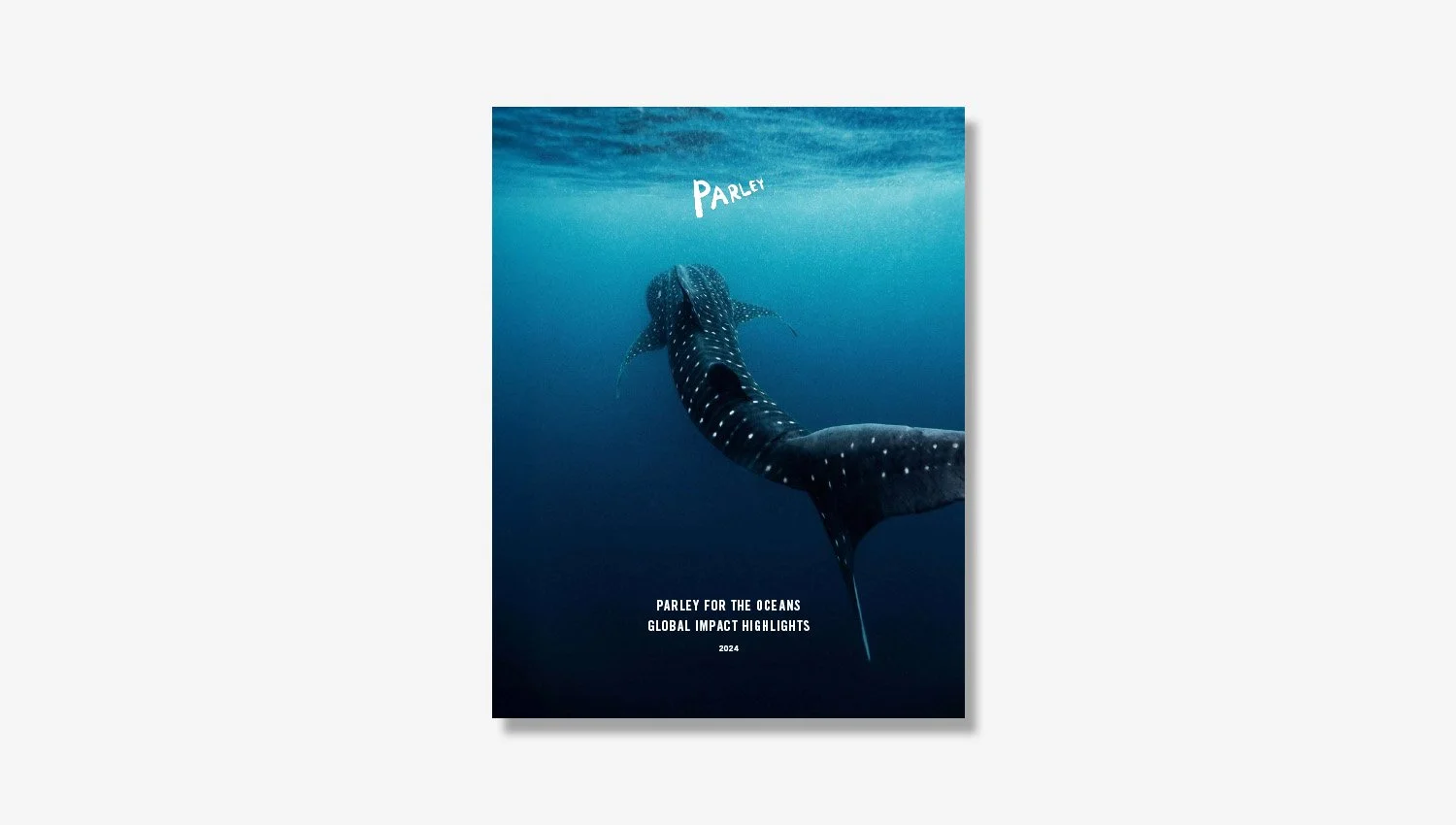The photographer who saw glaciers calving in Patagonia and knew that the world had to see it too
For our latest In Focus, we speak with Avery Schuyler Nunn about her work as an environmental reporter seeking to answer the questions that she had as a kid
Like many kids, Avery Schuyler Nunn had a lot of questions. Growing up in Ocean City, New Jersey, she spent her early years clambering through creeks, playing in the ocean, and discovering the various life forms that build their homes and lives in the crevices of our planet. Her interest in science developed naturally at an early age, and although she went on to study English, the raft of inquiries she’d had as a child still buzzed around her brain. Still, she felt she needed answers.
It was a trip to Patagonia, where she saw glaciers collapsing at the end of the world, that cleared her head about what she wanted to do, or what she wanted people to see. Photography is in her family – her father had passed down various lenses over the years – and when she returned from Patagonia with books of notes and folders of imagery, she sent her work off to a now-defunct magazine who published the story, thus beginning her career as an environmental reporter, capable of producing both in-depth copy and stunning photography. Since then, her work has appeared in titles such as National Geographic, Smithsonian Magazine and Atmos, reporting on a range of topics: ecosystems attached to oil rigs, interactions with humpback whales, and the significance of a specific bloom of jellyfish.
A lot of Avery’s photography is captured on the shores of California, the place she calls home. Underneath the surface she dives through kelp forests, immersed in the seductive shadows of the seaweed cities. Her photos of waves communicate a peace and stillness that’s at odds with the reality of the water‘s power.
For the latest in our In Focus series, we caught up with Avery to discuss her journey as an environmental reporter, a serious accident that reconfigured her relationship with the ocean and, most importantly, Paul McCartney.
Q & A
I like your tagline – ‘stoked on science’ – something that you say was was fostered from an early age. Can you tell me where that obsession with science came from and how that then led to a Master's of science degree?
Thank you! I think it was rooted in my childhood, spending a lot of time outdoors in the woods and creeks and oceans – catching frogs, wandering trails, pressing flowers, examining shells – just being constantly filled with questions. In Ocean City, New Jersey, I was drawn to the jetties, these long arms of rock reaching out into the ocean. I’d scramble around them and was fascinated by the sea creatures and algaes in the nooks and crannies of the boulders, kind of hooked by an endless curiosity. Though I studied English in college, I kept feeling the pull of science, and people often noted to me that they didn’t think English would be the most practical path, so I dabbled in other subjects. But in the end, I couldn't shake the love for stories and storytelling.
It wasn’t until later in my studies, when I started taking geology courses, that everything clicked. A field study in Ecuador, where I explored volcanic formations with my professors, was a turning point for me. That’s when I truly got stoked on science. And photography was something I had been stoked on since middle school that slowly evolved over time. I was searching for a way to blend science and my creative passions to form a bigger side to storytelling – since science in a way, and especially rocks/geology, tells their own story and own history. Photography became that initial bridge for me—passed down from my father, it was more than just a camera; it was a way to capture the answers I sought, a way to explore the natural world through a different lens. I found that using my camera became a tool for exploration. It was a different way to look at questions I had, answers I wanted and the things that I was seeing outside.
Then came Patagonia, where I spent a few weeks backpacking around after college. Seeing glaciers calving and collapsing in person gave me some clarity about my path, because I felt like it was something that I really wanted other people to see, hear and witness…it’s a pretty obvious symbol of our changing climate and it really struck me. When I returned, I had a camera full of photos and a journal filled with notes and thoughts. I scraped some ideas together to write an article, sent it off, and when a magazine said yes – it really felt like the beginning of something meaningful. That was when I knew I could weave these passions together—science, storytelling, and imagery. From there I went onto grad school to hone in on it all.
“For me, photography doesn’t pull me away from the experience. If anything, it draws me in deeper.”
Avery Schuyler Nunn
I particularly love your photography of waves. What is it about them that you really like capturing? There’s a stillness to them.
There’s something deeply connective about being in the waves. Spending time with the ocean, you start to form this bond, almost like a conversation. Each wave is different, each with its own personality, its own rhythm. Capturing that “perfect” moment that I usually look for—the curl just before it crashes into whitewater—presents a unique challenge. I really enjoy the complexity and unpredictability of that. The timing is always shifting, the light ever-changing, and finding that precise frame feels like a puzzle that’s never quite the same.
I’ve heard a lot of people say they feel that photography removes them from being fully present in the moment, but I think for me, photography doesn’t pull me away from the experience. If anything, it draws me in deeper. It sharpens my senses and makes me acutely aware of the play of light, the exact moment I need to dive beneath a wave, the way the ocean moves. After a morning swim, even if I only come away with one picture I truly love, I’m filled with this total dopamine rush from the cold saltwater.
As for the stillness you mention, I love that you think that! I’m not sure how my images came to all have this theme – it might be a reflection of how I’m experiencing the moments themselves. When I’m out there with my camera, it’s sometimes in these kinds of intense conditions or harsh weather scenarios and I always try to keep my peace and absorb those quieter moments—the calm before the wave breaks, or the serene lull between sets. There’s a restlessness and a stillness to nature, and that’s what I try to capture.
You talk about that connection, a feeling of stillness, but when you're out there on your own, are there times you feel unsettled? Does the ocean ever freak you out?
Oh my gosh, totally. The ocean can be both a friend and a force to be reckoned with. Every time I slip into that mindset of feeling completely safe—thinking the ocean and I are harmonious besties—something happens to remind me that it holds all the power. The elements are always in charge. When I’m with friends, there’s often a certain comfort in being the one they look to for reassurance. Whether it’s swimming in a kelp forest or shooting waves at dawn, I’ll notice them getting a little unsettled, and that calm I feel seems to steady them. But I never put myself in situations that are too extreme. Even when the ocean seems calm, there’s always the possibility that something could happen, and I like to walk that fine line—expanding my comfort zones, but not recklessly.
A few years ago, on a mellow and sunny and beautiful surf morning, I ended up with a serious concussion that took months to recover from, and a full year to stop feeling pain from. That experience really shifted my relationship with the ocean. I remember feeling almost betrayed by her, like something that had always been a source of joy had turned on me. I remember going to the shoreline and having a solemn angry-cry three months after the injury. But when I finally went back to surf again, something shifted. The moment I paddled into a wave, I remembered why the ocean is my greatest love. Even though that day wasn't really big, it altered my perspective of boundaries, respect for the elements and my own limits too.
For your studies, you specialized in investigative environmental reporting and the climate-driven relocation of marine species during your masters. Can you tell me what you learned about our world during that period?
I had always had a strong desire to make positive changes for the environment, and after witnessing those glaciers firsthand, I knew that I wanted climate to be my focus. There was a lot of fire inside me, and there still is. I ended up working for a surf magazine for a bit, pitching and intertwining ecology and science as often as I could, but I yearned for deeper dives into data and solutions-oriented environmental stories. Then, I worked at a climate magazine for a bit – which was a great experience,though much of the writing centered on quick turnaround news stories on deforestation laws and policy. Important topics, no doubt, but often a bit dry, and too removed from species. It was during that time I realized I wanted to weave more color into the stories I told, and that animals and the ocean were where I wanted to go. Policy is crucial—it’s what really drives change—but I knew I wanted to approach it differently, through a lens of awe, empathy, and action. And I was seeing and reading about a lot of shifts in the oceans, and knew that my passion was mostly aligned there. So in grad school, my focus shifted, almost solely, to the oceans. I was drawn to the ways climate change forces marine species to migrate, chasing cooler waters toward the poles. It’s a phenomenon that reshapes ecosystems, as species find themselves in unfamiliar habitats. My thesis story centered on a massive jellyfish bloom in the Gulf of Alaska—a bloom that wasn’t supposed to be there. It was discovered by a salmon research vessel, and the scientists on board ended up publishing a paper on it. They were aboard this quirky Russian expedition ship, and we spent months doing interviews to hone in on the kinds of details that breathe life into a story for me—the oddities, the sense of adventure, the smells, the sounds, the fun little nuances. Those are the moments that linger, the ones that remind me why I love this work!
Do you have a particular technique when you are out taking photos in the ocean? Are you looking for something specific at specific times or are you just heading out seeing what you can find?
It really depends on the day and the moment. I often find myself in two main worlds—the kelp forests, my favorite ecosystem, and the waves. When I first started diving in kelp, my focus was on the wildlife—trailing harbor seal pups or observing different fish. But lately, my attention has shifted to the kelp itself. I love capturing the intricate details of the fronds. Or I’ll focus on waves—their power, their grace. Those are the two main subjects I return to, though the ocean always throws in some surprises with other elements and creatures along the way..
I usually go in with the focus of playing with different light—the way it filters through the trees of the forest, casting shadows and highlighting textures. Before I swim out, I choose a lens to stick with for that swim, so what I’m capturing is somewhat predetermined and planned out, because I’m limited to one lens in the water at a time. If I’m focusing on the small, intimate details, I’ll bring a lens for that. Or sometimes I’ll sit on the ocean floor, aiming for a wider view to capture the vastness of the kelp forest. For the waves, there’s a specific lens I rely on too, and once I’m out there, I don’t adjust anything. I like committing to a perspective and just saying “let’s see what happens” and let the ocean reveal itself “through that lens”!
“Thriving ecosystems are made up of interconnected yet independent organisms that support and sustain one another. I hope humanity can embrace that same spirit.”
Avery Schuyler Nunn
As somebody who is constantly immersed in nature, documenting it, writing about it, how confident are you for its future?
That’s a big question! I’m very hopeful, though there are moments when I get bogged down a bit. Generally the scientists that I connect with are hopeful too. We have the knowledge; we know what needs to be done. It mainly comes down to reducing fossil fuels. What frustrates me is when individuals are shamed for their choices or their perceived impact when they’re trying their best. It’s not about pointing fingers at people trying to get by—like a single mom of three kids who might rely daily on things wrapped in plastic. This is a systemic issue, not an individual one. At the same time, I think people can feel a tinge of guilt when they know they could be doing better without much more effort, which is important to listen to and honor too.
What I really aim to do is just enjoy and share the things that I care about and enjoy – and if people take some inspiration from that and in turn, care enough to make small changes in their own lives, or fuel some fire to push for the larger policy changes we need – then that feels really wonderful! It has to be a collective, hopeful effort. That’s why even something as simple as sharing photos on silly little Instagram can feel meaningful to me. It might seem trivial, but I see it as a way of helping people connect with places they can’t easily access, especially underwater. If sharing an image makes someone see the world differently, maybe it sparks something in them. That’s the goal—to make people care, to remind them to experience the joy of being here, on this planet. So, I go back and forth, but at my core, I’m pretty hopeful. And gosh I just love nature and reminding people that we are part of it. We all just need to keep reminding each other what’s at stake and admire all of the adventure beauty that’s there, while we’re here!
We're talking as Hurricane Milton is making its way across Florida. The severity and the frequency of those events is increased by the fossil fuel companies. Do you get a sense that people are waking up to that?
I do think people are waking up to it, especially within my own circles. My community and close friends really care, though I recognize it can feel like an echo chamber at times. But still, I believe there’s a shift happening. Our generation, in particular, carries a lot of passion—and there’s always been that energy with young groups carrying a lot of drive toward whatever cause they see fit. And now, the environment and climate seem resonating across political lines more and more for younger groups, which gives me hope. It’s something we can’t afford to ignore, and I think more and more people are realizing that. We have to care—it’s as simple as that. My partner and I were watching the Lorax recently: “I'll yell and I'll shout for the fine things on earth that are on their way out!” and "Unless someone like you cares a whole awful lot, nothing is going to get better... it's not!"
Second to last question, but a very important one. You're a huge Paul McCartney fan, right?
Yes!
Favorite Macca track?
Can I do Wings?
Yes, I’ll let you have Wings.
For Wings, I love “Let Me Roll It.” And, I listen to the Ram album, particularly the song “Heart Of The Country” all the time in the morning (written by Paul and Linda McCartney). And I love Linda’s fun little tracks, like “Seaside Woman”. She was a photographer, so I feel like I have my own kinda connection with her, though we were only earthside for one year at the same time!
What are your hopes for the future, both personally and for civilization?
Personally, I hope that I can just do so much more, forever! Something that feels like it truly sparks change. I love hearing that a story I’ve written inspired someone or got them thinking differently, or that a photograph made them feel some sort of nostalgia or care or connection with the planet. Sometimes the impacts are hard to see as tangible. I hope to continue to find ways for my work to make real shifts, whether it’s influencing policy or sparking a larger project that makes a noticeable impact. I think it’s tough to feel that I’m doing much on an individual level, but maybe if I map out a clearer vision I can bring that to life. Really my personal hope is to keep creating outdoors, listening to stories, telling stories, to make knowledge and science accessible and fun for everyone, and to just genuinely enjoy the process along the way.
For civilization, I hope for more empathy. For each other, but also for the planet and all of the species we share it with. Thriving ecosystems are made up of interconnected yet independent organisms that support and sustain one another. I hope humanity can embrace that same spirit, becoming more like an ecosystem ourselves. Staying true to an individual self, while uplifting and connecting with those around you. If we share a little more love and uplift one another, perhaps we’ll naturally begin to care more deeply and truly about the Earth, and be driven to become better stewards, making meaningful change for the future.

























